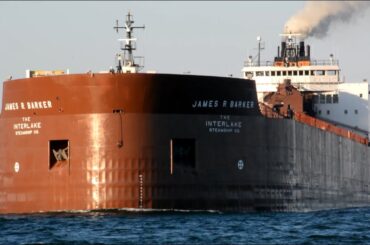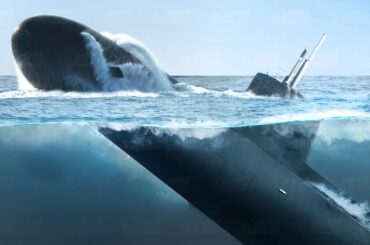Marine engineering is a field of engineering that focuses on the design, development and maintenance of maritime vessels. It combines aspects of mechanical engineering, electrical engineering, naval architecture and other related disciplines to create efficient and effective solutions for ocean-going vessels. This article will provide an overview of marine engineering, including its history, current applications, and future prospects in the field.Marine engineering has been around since humans began using boats to transport goods across bodies of water. The earliest recorded use of ships dates back thousands of years and even as far back as antiquity there were records showing some form of shipbuilding technology being used by various cultures. As time went on, advances such as steam power and internal combustion engines meant larger vessels could be built with more complex systems onboard. Since then, tremendous progress has been made in the field of marine engineering which has enabled us to build ever bigger ships capable of navigating oceans with greater efficiency than before.In modern times, marine engineers are responsible for designing ships’ propulsion systems; their hulls and superstructures; navigation equipment; communication devices; fire protection systems; emergency response innovations; and much more. They must also take into consideration factors such as fuel consumption levels, cargo capacity requirements, safety regulations, environmental standards, speed limitations etc., all while keeping costs at a minimum. All these elements come together to make up what we know today as modern day marine engineering principles and practices.
Definition Of Marine Engineering
Marine engineering is an interdisciplinary field of study, encompassing many scientific and technical fields. It involves the application of mathematical and physical principles to develop efficient solutions for a wide range of problems in marine-related industries such as shipbuilding, offshore infrastructure, naval architecture, oceanography, marine engineering systems design and operation. The definition of marine engineering emphasizes its broad scope; it can involve anything from the design and construction of ships or other vessels to their maintenance and operations.In order to understand what marine engineering entails, one must first comprehend its two main components: mechanical (or electrical) engineering and naval architecture. Mechanical engineers are responsible for designing the propulsion system that powers a vessel while naval architects focus on the structural integrity of a boat’s hull and decking. Both areas require extensive knowledge in mathematics and physics in order to create effective designs. Additionally, understanding aerodynamics helps optimize performance by reducing drag on various surfaces exposed to water flow. Marine engineers must also possess strong problem solving skills since they may face unexpected events during normal operations at sea.
Education And Training Requirements
Marine engineering education and training is essential for aspiring marine engineers. Generally, a four-year bachelor’s degree in Marine Engineering or Naval Architecture is required to get into the profession. The curriculum of these programs typically include courses such as physics, calculus, mechanical systems design, oceanography and computer programming. In addition to college coursework, most employers require candidates to have practical experience related to boat maintenance and repair.In some cases, specialized certifications are also needed for certain types of positions within the field of marine engineering. Many organizations offer advanced qualifications that would give an individual the necessary skills to work with specific machinery on board ships. For example, those who want to specialize in Ship Maintenance Management may need additional certification from IAMMM (International Association of Maritime Machinery Manufacturers). Similarly, those wishing to become a Navigation Officer must receive professional navigation qualification from Nautical Institute or other recognized maritime organization.The educational requirements to become a qualified marine engineer vary depending upon the industry sector one intends to serve; however all applicants must demonstrate adequate knowledge and experience before being granted entry into this competitive occupation.
Job Duties And Responsibilities
Marine engineering is a challenging yet rewarding field that requires professionals with specialized skills and knowledge. Marine engineers are responsible for the design, development, maintenance and repair of vessels, engines and other machinery used in marine transportation. This section will outline key job duties and responsibilities expected from marine engineers.The primary responsibility of a marine engineer is to ensure the safe operation of ships by overseeing all engine room operations. They must be able to maintain and repair any machinery or equipment found on board maritime vessels such as pumps, boilers, air conditioning systems and propulsion systems. Other tasks include ensuring that safety procedures are followed at all times, monitoring fuel consumption levels, performing routine inspections of ship components and diagnosing technical problems. Additionally they may be called upon to manage onboard crew members involved in engineering related activities.In light of their extensive responsibilities it is essential for those interested in this profession to possess strong problem-solving abilities along with excellent communication skills. Below is a list outlining some common marine engineering duties:
- Designing new vessel layouts
- Monitoring performance of mechanical systems
- Making repairs when necessary
- Maintaining various types of machinery
- Creating reports detailing work performed on vessels
To perform these duties effectively an understanding of principles associated with thermodynamics, fluid mechanics and electricity is required along with experience working with relevant software applications. In addition to theoretical knowledge hands-on training using actual machines found aboard ships should also be obtained prior to entering into practice as a professional marine engineer.
Types Of Marine Engineers
Marine engineering is a broad field that covers many disciplines, from naval architecture and submarine engineering to shipbuilding engineering and offshore engineering. Marine propulsion engineers design engines for boats, ships, submarines, and other vessels; they also specify the materials needed for these projects as well as analyze how their designs will affect the speed of vessels. Naval architects are responsible for designing the shape and structure of watercrafts such as yachts, cargo ships, tankers, ferries, cruise ships and more. Submarine engineers focus on developing new technologies to make underwater travel safer and more efficient. Shipbuilding engineers work with components used in marine transportation systems like propellers, rudders, hulls, masts and rigging systems. Finally, offshore engineers design platforms necessary for oil drilling operations or to transport goods across oceans. They must be able to create structures that can withstand harsh weather conditions while being safe enough to protect personnel onboard at all times.
Career Outlook
The career outlook for a marine engineer is positive. As the demand for vessels and ships increases, so does the need for qualified engineers to design and build them. Marine engineering jobs are available in both private organizations and government agencies, providing many options for those seeking employment in this field. The median salary of a marine engineer ranges from $62,000 – $93,000 per year depending on experience and qualifications.The future job prospects of marine engineers look strong due to an increasing number of seafaring vessels being used by companies around the world. Technological advancements have made shipping more efficient than ever before, creating even more opportunities for individuals looking to pursue a career as a marine engineer. With the right training and qualifications, those interested in marine engineering can expect great job security with promising salaries over their lifetimes.







